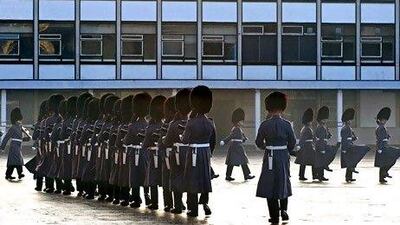Qatari Diar, the property investment arm of the Qatar government, is cutting back staff and restructuring management as part of a re-evaluation of its business plans.
The changes include a new chairman, the Qatar finance minister Yousef Hussein Kamal, who last month replaced the Qatar prime minister Sheikh Hamad Al Thani.
Qatari Diar has not confirmed the change, but sources close to company say Mr Kamal has been in the position for a month.
Thirty positions were eliminated in recent weeks, bringing the total staff count to 350, down from a peak of 600 two years ago, said sources familiar with the company who wished to remain anonymous. Staffers reportedly did not receive their usual annual bonuses in April and most salaries have been frozen.
Qatari Diar officials could not be reached for comment.
Qatari Diar's development business has been hard hit by the financial crisis and the political turmoil in parts of the Middle East. Work has reportedly stopped on projects in Libya, Tunisia, Syria and Yemen.
Last week the company received preliminary approval for its US$4.8 billion (Dh17.63bn) plan to redevelop the Chelsea Barracks site in London after three years of controversy. An earlier design created by Rogers Stirk Harbour and Partners was scrapped after Prince Charles complained about the modern glass-and-steel design.
Qatari Diar paid £959 million (Dh5.62bn) for the site in 2008, at the time the largest amount paid for property in the city. The company is also financing construction of the Shard, which will be London's tallest building.
Qatari Diar, which was formed in 2004 by the Qatar Investment Authority with $1bn in capital, lists 35 active projects in 20 countries. But few of the company's developments are producing revenue at this point.
"It wouldn't surprise me that they have to retrench a bit," said Victoria Barbary, who tracks sovereign wealth funds for the Monitor Group, based in London. "They probably extended themselves a little too quick and now they need to rethink the way they are working."
Qatari Diar is trying to cut costs as it re-evaluates its basic mission, the sources said. It is primarily an investment company, but it has also taken an active role in developing large, mixed-use projects in destinations such as Cuba, Tajikistan and Djibouti. But many of the international projects are on hold, sources said.
Earlier this year the company announced its first investment in the US, a $700m mixed-use project on 4 hectares in Washington.
"The cutbacks and changes are more of a change of strategy," said one person close to the company, who asked not be named.
The company is searching for "clarity of mission", deciding whether it will be an investment company or a developer, the source said. Qatari Diar will need capital to move forward with its ambitious commitments.
Lusail, Qatari Diar's signature project in north Doha, is still in its early stages. Designs call for a city-within-a-city covering 35 square kilometres planned to eventually house more than 190,000 people.
A new stadium is planned for Lusail to host the final matches of the 2022 Fifa World Cup.
Last year Qatari Diar Finance sold a $3.5bn bond that was used to repay debt incurred by Barwa Real Estate, a property developer 45 per cent owned by Qatari Diar.
Earlier this year Barwa moved to cut 20 per cent of its staff. But the reductions were reportedly halted after they became public knowledge and the company's chief executive was replaced.

